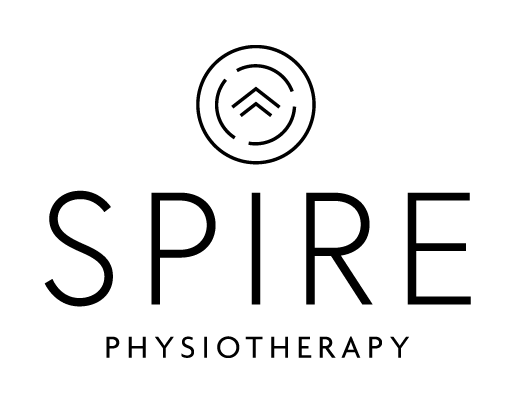AM I A RUNNER?
Am I a Runner?
How many times have you heard someone say that they are heading out for a run and thought to yourself “no way I could do that, I am not a runner!”. What’s holding you back?
Running offers a plethora of mental and physical health benefits. Let’s explore the benefits and potential risks when considering incorporating running into your lifestyle.
As an Athletic Therapist, the consideration of the physical benefits of running would be the primary draw to prescribe running as a form of exercise. Taking up running is a great way to promote long term health, especially considering research has suggested that runners live approximately three years longer than non-runners. (1)
Cardiovascular Health
Running is excellent for cardiovascular health, as it helps reduce the risk of heart disease, stroke, and other related conditions by strengthening the heart and improving circulation. Running, even at levels well below the current minimum guidelines for physical activity, is associated with reduced risks of death from all causes and cardiovascular disease. In fact a 2015 study found runners had a 30% lower risk of death from any cause and a 45% lower risk of death from heart disease or stroke. (2)
Bone and Muscle Strength
As a weight-bearing exercise, running helps build stronger bones and muscles, particularly in the legs, hips, and lower body. Running's pivotal role in stimulating bone and muscle growth is generated by the impact forces transferred to our bones from the ground. These forces act as signals for bone cells to kickstart the remodelling process, thereby increasing bone density and strength over time. (3)
Reduced Risk of Chronic Diseases
Consistent running can lower the risk of developing chronic diseases such as type 2 diabetes, certain cancers, and osteoporosis. Exercising at a moderate intensity level for 3-4 hours a week or greater has approximately a 10-20% reduction in the risk of Cancer along with having beneficial effects on the survival of patients living with cancer. (4)
Improved Immune Function
Moderate exercise, like running, can enhance immune function, making you less susceptible to infections in both the long and short term. Decreasing the likelihood of contracting an acute infection and has the potential to improve immune and health outcomes in individuals living with chronic viral infections. (5)
Many individuals consider running not only for the physical benefits, but for the many mental health benefits it offers.
Reduction of Stress and Anxiety
Running is an effective way to relieve stress and anxiety. The physical activity triggers the release of endorphins, which are chemicals in the brain that act as natural mood enhancers and pain relievers. This can be most commonly described as a “runners high.”
Improved Mood and Self-Esteem
Engaging in regular physical activity, such as running, can lead to increased self-confidence and an overall improved mood. The sense of accomplishment from reaching personal running goals can greatly boost self-esteem.
Better Sleep
Running increases the production of melatonin, a hormone that regulates sleep-wake cycles. Consistent running can help regulate sleep patterns, assisting in falling asleep faster and improving sleep quality. (6)
Enhanced Cognitive Function
Running enhances brain function by increasing blood flow to the brain, improving memory, concentration, and overall cognitive abilities. Therefore, the mental benefits don’t stop when you finish your run. Regular running can spark growth of new blood vessels to nourish the brain. Exercise may also produce new brain cells in certain locations, which may lead to an overall improvement in brain performance and prevent cognitive decline. (7)
Increased Energy Levels
The physical changes that regular running can provide allows our body to develop a natural energy boost, helping to combat fatigue and improve energy levels throughout the day.
Running can be a social activity, offering opportunities to connect with others. Joining a run club, similar to the one offered in the Spring and Fall by Spire Physiotherapy or simply exchanging greetings with fellow runners can enhance your social life.
With any form of activity, there are potential risks to consider when adding running as a form or exercise. As running is a high impact activity, running injuries can occur. Improper training or overtraining can lead to overuse injuries, shin splints, and plantar fasciitis. Although this may sound like a deterrent to some, the benefits of running far outweigh the risks. Injury can be avoided with proper training, footwear, and injury prevention strategies. A great way to avoid the risk of injury or burnout is by avoiding overtraining. Although once you have experienced the “runners high”, hitting the pavement running may be all you want to do!
As you can see, running offers a wide range of benefits for both mental and physical health. When it comes to navigating potential injury risks, along with listening to your body while assisting you through your personalized training plan, we at Spire are here for you!
Ready, let’s go for a run.
Book a Athletic Therapy Appointment
References
Running as a Key Lifestyle Medicine for Longevity: Duck-chul Lee, Angelique G. Brellenthin, Paul D. Thompson, Xuemei Sui, I-Min Lee, Carl J. Lavie. (2017)
The Impact of Physical Activity (Running) on Cardiovascular Outcomes: Rory B. Weiner, Aaron L. Baggish. (2015)
The effect of long-distance running on bone strength and bone biochemical markers: J Exerc Rehabil, (2019)
Why exercise has a crucial role in cancer prevention, risk reduction and improved outcomes: Thomas R, Kenfield SA, Yanagisawa Y, Newton RU. (2021)
Exercise and the Regulation of Immune Functions: Simpson RJ, Kunz H, Agha N, Graff R. (2015)
The Effect of Physical Activity on Sleep Quality and Sleep Disorder: A Systematic Review: Alnawwar MA, Alraddadi MI, Algethmi RA, Salem GA, Salem MA, Alharbi AA. (2023)
Long-term Mental Benefits of Exercise: David Linden, Johns Hopkins Medicine.




